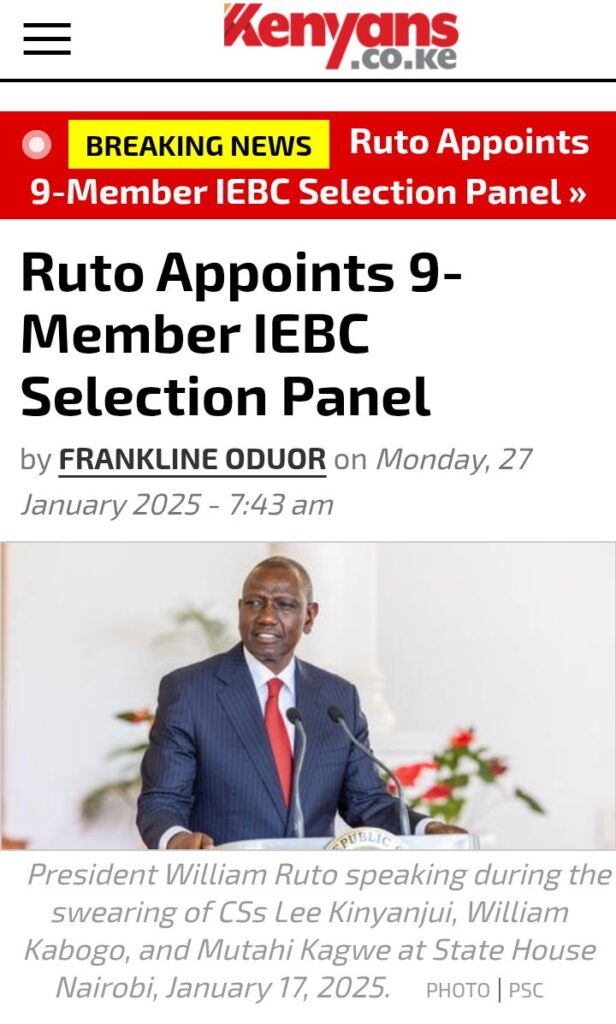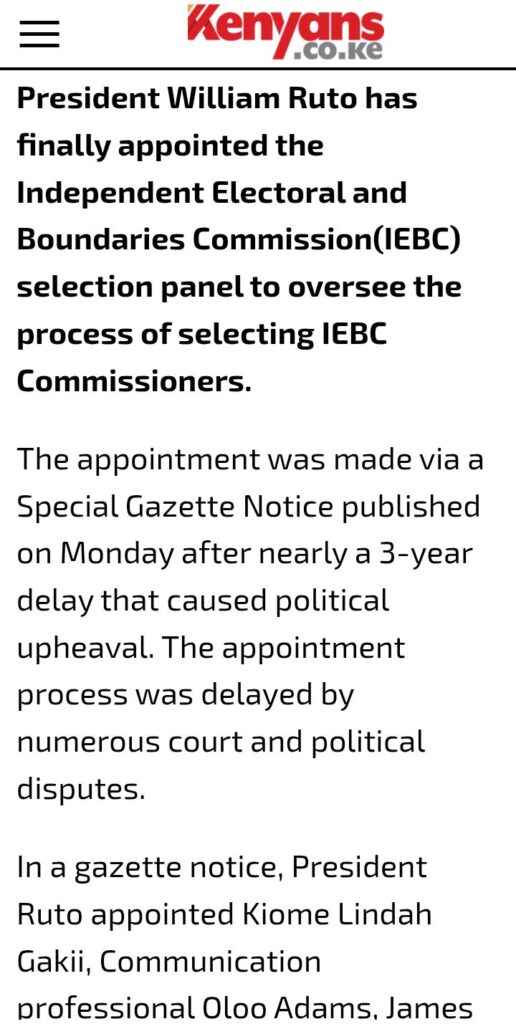According to reports by Kenyans.co.ke, President William Ruto has finally taken a crucial step in addressing the long-standing political uncertainty surrounding Kenya’s electoral body by appointing the Independent Electoral and Boundaries Commission (IEBC) selection panel.
This announcement was made via a Special Gazette Notice published on Monday, marking the end of nearly three years of delays marred by legal and political wrangling.
The prolonged delay in forming the IEBC selection panel had caused widespread political tension, with stakeholders across the political spectrum blaming the government for stalling.
The process, which should have been concluded years ago, faced numerous court cases and disputes, creating a vacuum in the leadership of the IEBC.

This situation had led to questions about the government’s commitment to ensuring free, fair, and transparent elections in the future.
The gazette notice outlines the appointment of nine members to the selection panel.
They include Kiome Lindah Gakii, communication professional Oloo Adams, James Evans Misati, Nicodemus Kipchirchir Bore, Ambassador Koki Muli Grignon, Carolene Kituku Tanui, Andrew Kipkoech, Nelson Makanda, and Fatuma Saman.
President Ruto exercised his authority under section 7A of the Independent Electoral and Boundaries Commission Act, alongside provisions from the First Schedule to the Act, to make these appointments.
The appointments also come with a major revision to a previously gazetted selection panel in 2023.
President Ruto revoked the earlier notice, signaling a new approach to assembling a team tasked with overseeing the recruitment of IEBC commissioners, including the chairperson.
This decision reflects a bid to restore credibility to the process following criticism from various quarters over the handling of electoral reforms.
The nine appointees will officially take office during a swearing-in ceremony scheduled for Monday at 9:00 a.m. at the Supreme Court Building.
Their mandate is to oversee the recruitment of individuals who will fill the critical roles of IEBC chairperson and commissioners, ensuring the institution is prepared to guide the country through future electoral cycles.
This development is expected to ease political tensions, especially with the opposition, which had been vocal about the delay in restructuring the IEBC.

However, questions remain about the independence of the new panel and whether its work will reflect the integrity required to rebuild trust in the electoral process.
Critics argue that the three-year delay has already inflicted damage on the IEBC’s reputation, making it imperative for the panel to act transparently and decisively.
As the nation awaits the panel’s next steps, all eyes will be on its ability to execute its mandate impartially and efficiently.
The hope is that these appointments will pave the way for much-needed electoral reforms and restore faith in Kenya’s democratic processes.


